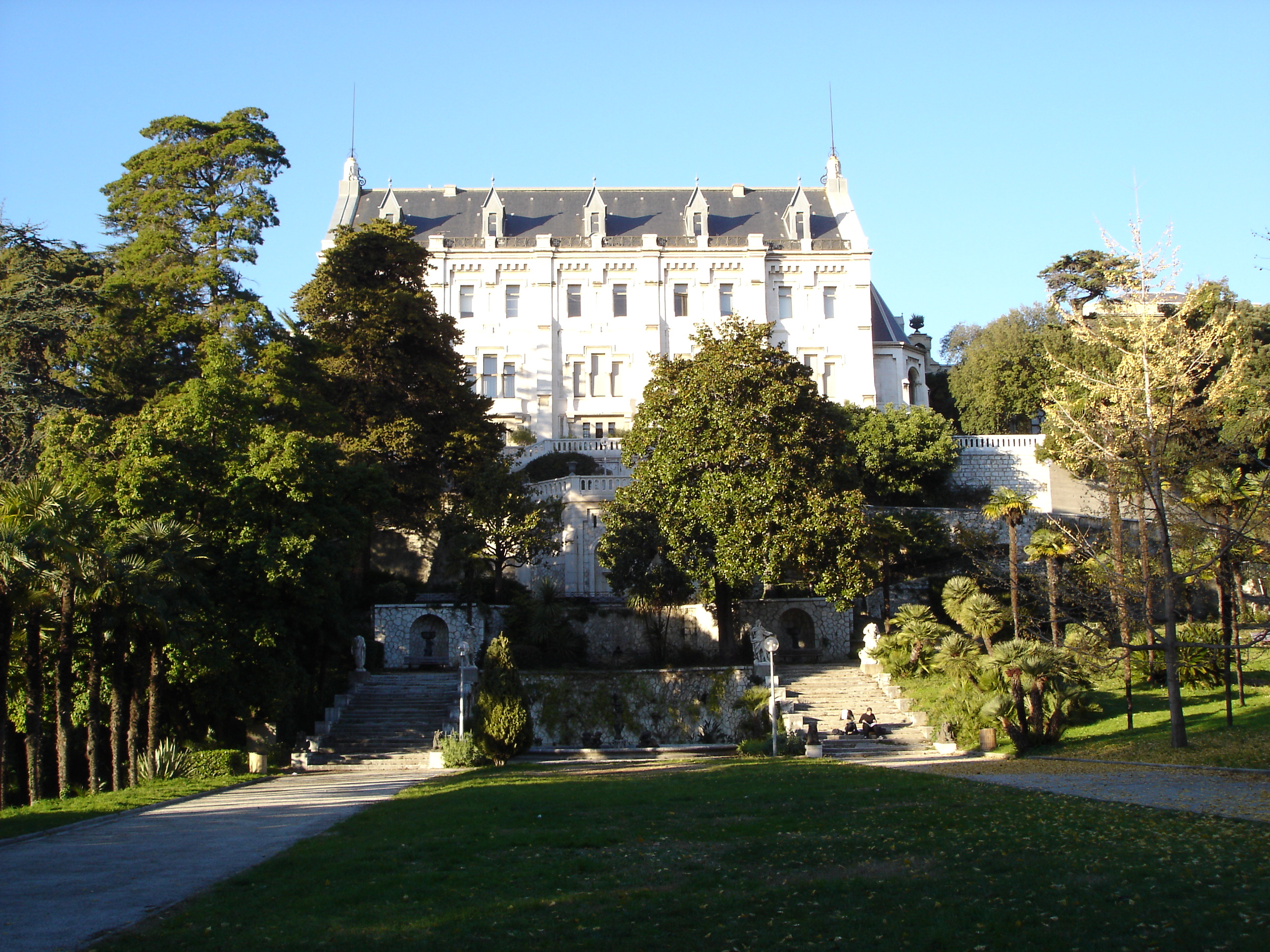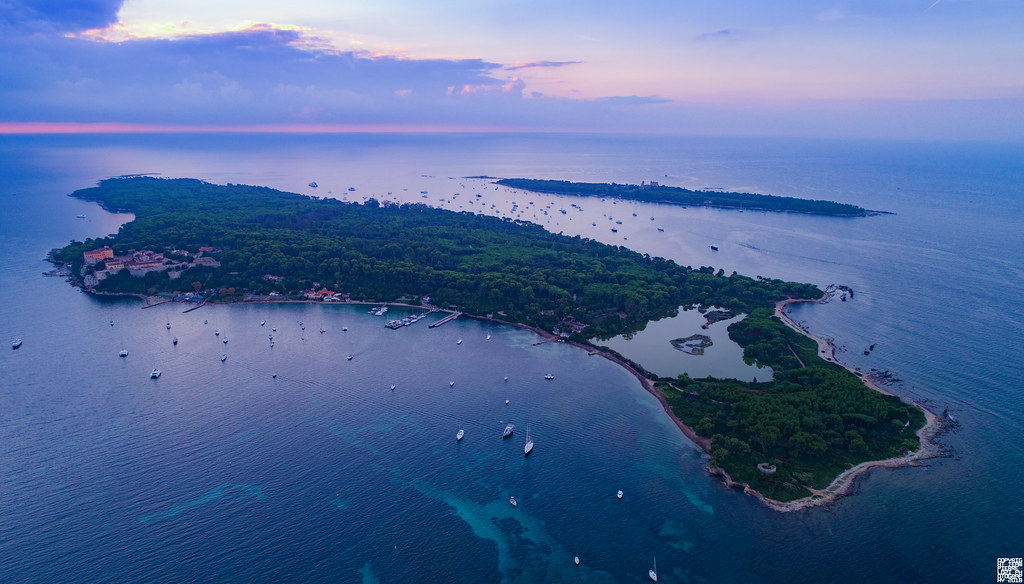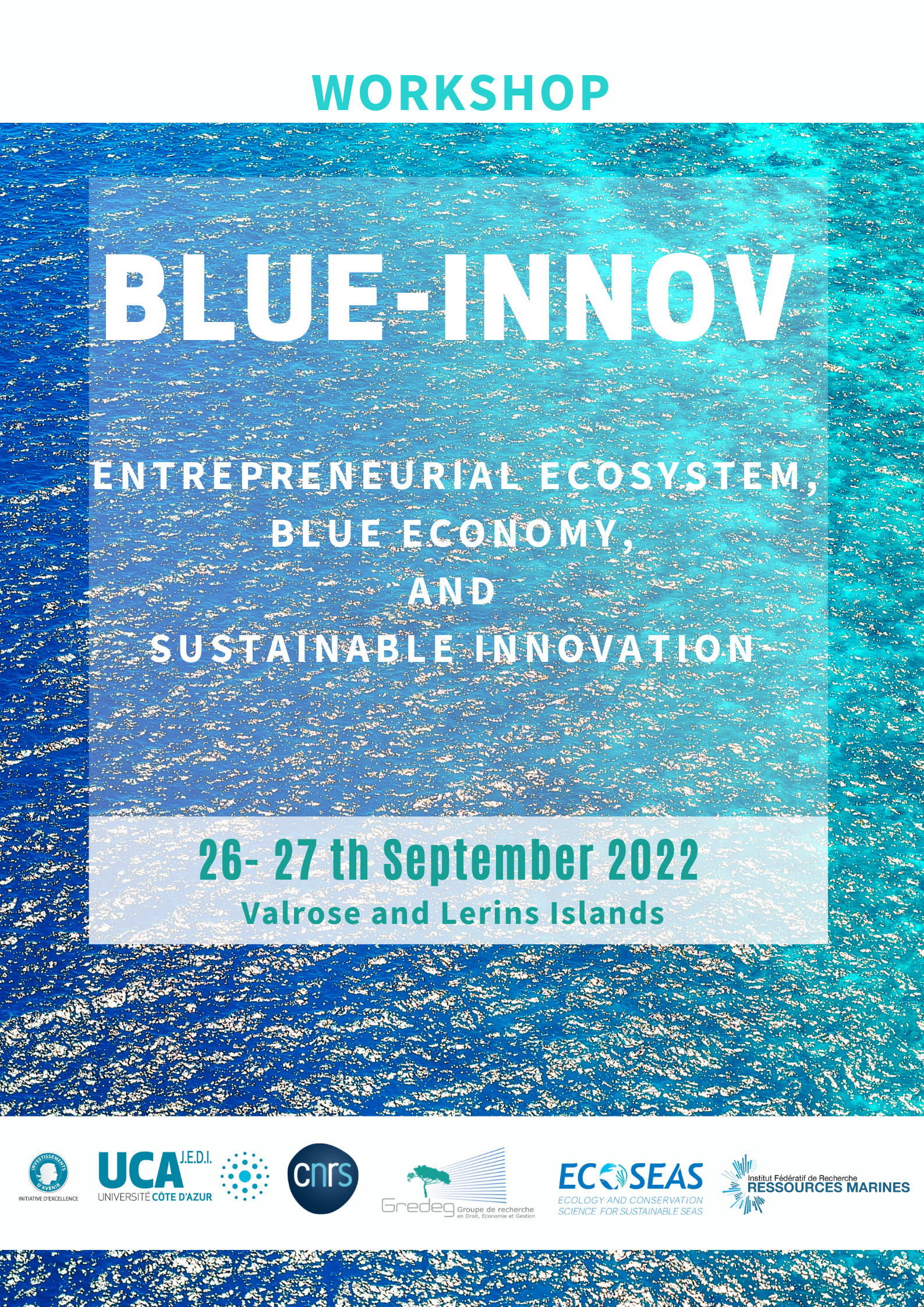BLUE-INNOV, Workshop « Entrepreneurial ecosystem, blue economy, and sustainable innovation »
du 26 septembre 2022 au 27 septembre 2022
Entrepreneurial ecosystems create unique opportunities and interactions for organizing ventures and for learning. They provide tools for learning and experimenting and unique mechanisms to exploit existing opportunities and innovation through resources, interactions and governance (Cao and Shi, 2021; Attour and Lazaric 2020; Gifford et al., 2020).
The Blue Economy (BE) is a recent field of study that encompasses economic activities that depend on the sea, often associated with other economic sectors, including tourism, maritime transport, energy and fishing. Blue growth supports the sustainable growth of the maritime and marine sectors as the oceans and seas are engines of the global economy and have great potential for growth and innovation. BE encompasses activities related to renewable energy use, waste management, climate change, fisheries and tourism, where the concept of economic circulation (based on recycling, extension, redistribution and manufacturing) can be integrated, moving from a linear economy to an economy that makes the most of waste through circular flow. Opportunities in BE are also provided in the framework of nature conservation (creation of employment in MPAs and NGOs involved in education and raising awareness; increase of touristic activities among others) and ecological restoration (consultancy, societies, industry involved in restoration action implementation and monitoring).
BE and sustainable innovations are necessary to preserve marine resources but imply trade- offs between short-term entrepreneurial development and long-term governance of the commons. The nature of these negotiations depends on the « grand challenges » to be solved, climate change and the ability of local communities to collectively negotiate their current priorities (sustainable fishing, plastic pollution, local governance rules). Decentralized and polycentric forms of governance such as suggested by Ostrom are appropriate as it allows to create some collective discussion and shared representations about a situation and a specific problem. For Ostrom (2010), the main issue is to govern commons and to preserve ecological resources and to experiment practices with shared rules. Governance mechanisms appear to be a key issue for the development of the Blue Economy but more largely sustainable innovation as regulation is the third pillar of eco- innovation (Rennings 2008). Thus, as it has been shown co-evolution of entrepreneurial activities and policy making should co- evolve to foster innovative policy, knowledge and to preserve commons (Gifford et al. 2020). The workshop will explore this apparent paradox and will observe how local actors, public and private organizations alongside with policy makers provide new tools and governance devices to foster sustainable innovation and to preserve both ecological and entrepreneurial ecosystems.
Location

Nice- Valrose (Day 1)

and Lerins Islands (Day 2)
Academic partners:
KIES, University of Gothenburg, SwedenSpeakers:
- University of Gothenburg (Maureen Mc Kelvey, Ethan Gifford, Linus Brunström), Sweden
- University of Cadix (Mercedes Jiminez Garcia), Spain
- Université Côte d’Azur (Nathalie Lazaric, Luisa Passeron-Mangialajo and Cécile Sabourault, among others), France
- University of Genova, Italy
- University of Innsbruck, Austria




